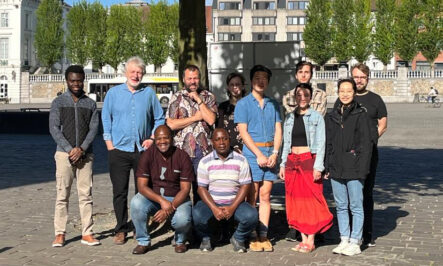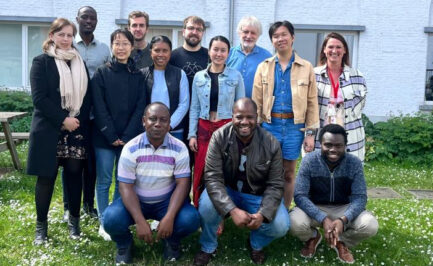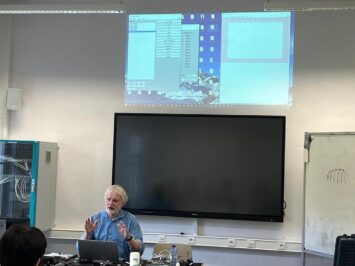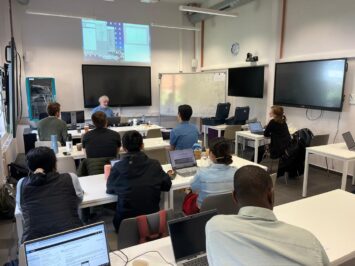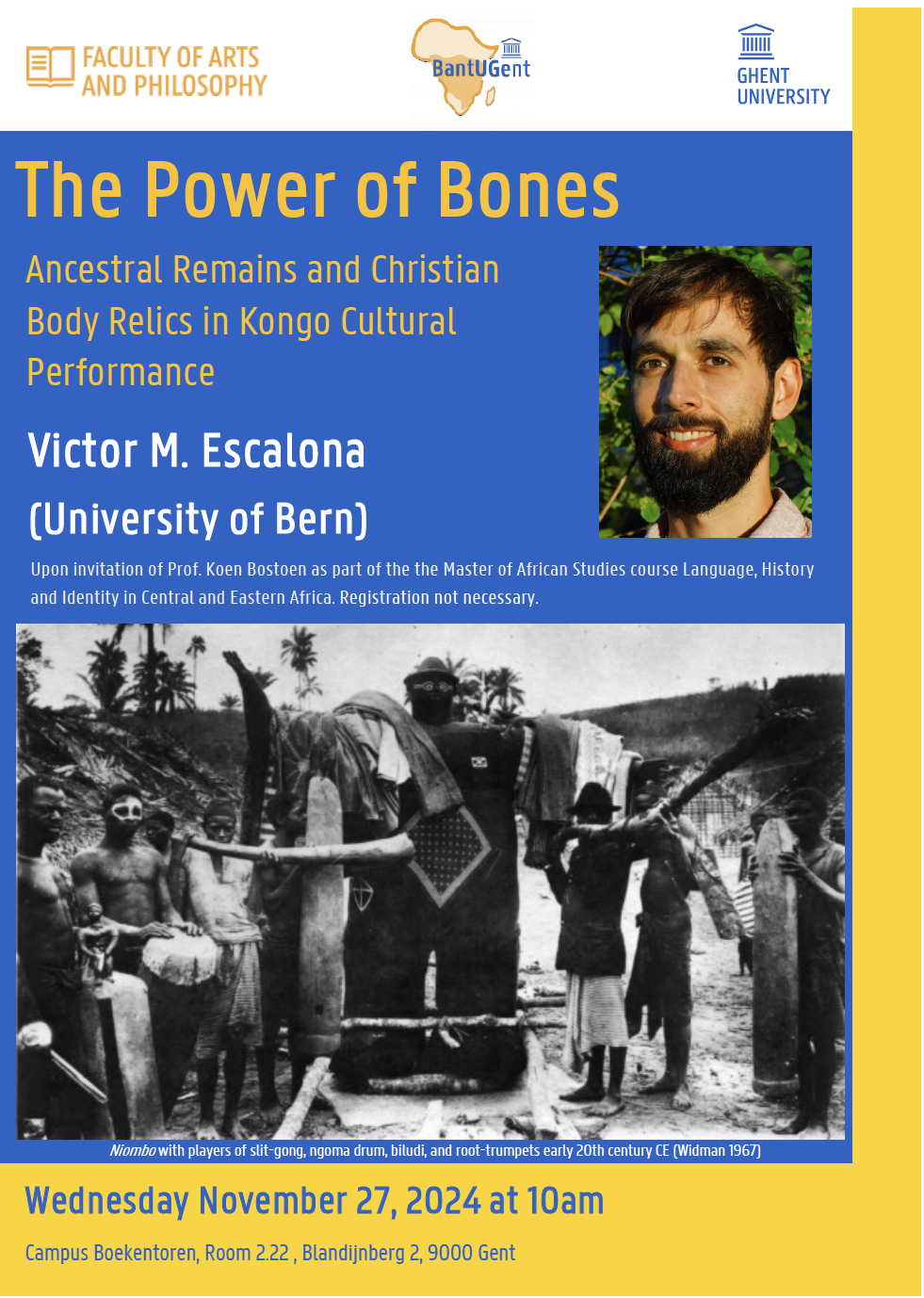From May 14 until May 16, 2025, BantUGent is offering a three-day Doctoral School Specialist Course on “Phonetics as a key method for language description and documentation” taught by Prof. Dr. Didier Demolin (Université Sorbonne Nouvelle, Paris). Registration is required and can be done here until May 12 before midnight. This event is financed by the Doctoral School of UGent and the Flemish Government.
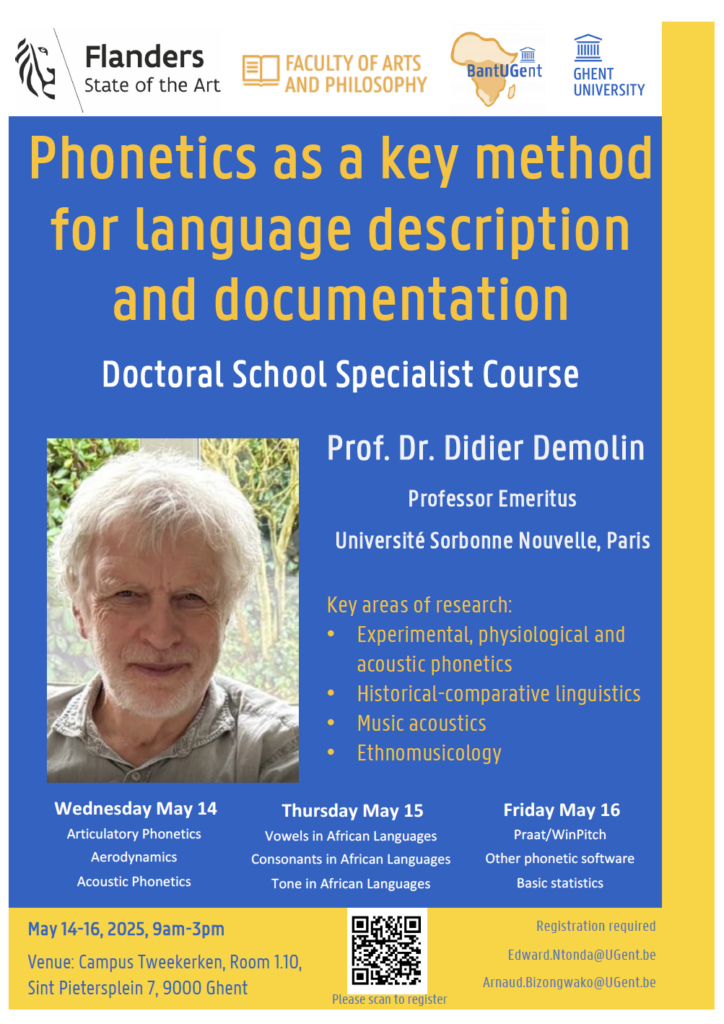
What? BantUGent research seminar
When? 7 May 2025
Where? Room 2.23 (Panopticon), Blandijn, Campus Book Tower
Time: 10.30 – 12.00
Elisabeth Kerr
“FWO-MBAM: Preliminary Fieldwork Findings”
To join the meeting online via MS teams, please contact Nina van der Vlugt (Nina.vanderVlugt@UGent.be) and/or Paulin Baraka Bose (Paulin.BarakaBose@UGent.be).
What?BantUGent research seminar
When? 12 June 2025, 2pm
Where? Room 3.30, Camelot, Blandijnberg, Campus Boekentoren
Hilde Gunnink (BantUGent; Leiden University)
The origin of click words in Sotho (Bantu, S30)
To join the meeting online via MS teams, please contact Nina van der Vlugt (Nina.vanderVlugt@UGent.be) and/or Paulin Baraka Bose (Paulin.BarakaBose@UGent.be)
What? BantUGent research seminar
When? 16 June 2025, 2pm
Where? Room 3.30, Camelot, Blandijnberg, Campus Boekentoren
Paulin Baraka Bose (BantUGent,
CongUbangi research project) – The gender system of Gezon, a poorly known variety of Pagibete (Bantu, C401)
Lorenzo Masselli (BantUGent) – Phonetic and phonological documentation in Central African Republic: preliminary field report
To join the meeting online via MS teams, please contact Nina van der Vlugt (Nina.vanderVlugt@UGent.be) and/or Paulin Baraka Bose (Paulin.BarakaBose@UGent.be)
What? BantUGent research seminar
When? 19 May 2025, 2pm
Where? Room 0.3, Blandijnberg, Campus Boekentoren
Chrisnah Renaudot Mfouhou (BantUGent, CongUbangi research project)
The noun class system of Ndungale [Ndt], an Ubangi “Mbaic” language of the Democratic Republic of Congo
To join the meeting online via MS teams, please contact Nina van der Vlugt (Nina.vanderVlugt@UGent.be) and/or Paulin Baraka Bose (Paulin.BarakaBose@UGent.be)
What? BantUGent research seminar
When? 28 April 2025, 2pm
Where? Room 0.3, Blandijn, Campus Boekentoren
Dana Louagie (presenter), Elisabeth Njantcho Kouagang & Mark Van de Velde (LLACAN, Paris)
Nominal expressions in Kwakum (Bantu, A91): constructional exuberance
To join the meeting online via MS teams, please contact Nina van der Vlugt (Nina.vanderVlugt@UGent.be) and/or Paulin Baraka Bose (Paulin.BarakaBose@UGent.be)
What? BantUGent research seminar
When? 24 February 2025
Where? Lokaal 2.24 – Blandijn, Campus Boekentoren
Time: 14.00
Presenterː Peter Coutros
Titleː “(Ethno)archaeological research in the Central African Republic: Initial Results from the 2025 CongUbangi campaign”
To join the meeting online via MS teams, please contact Nina van der Vlugt.
What? BantUGent research seminar
When? 20 January 2024
Where? Lokaal/Room 2.23 – Panopticon, Blandijn, Campus Boekentoren
Time: 14.30-16.00
Who? Lis Kerr on “OV et VO dans les langues bantoues/bantoïdes camerounaises”
To join the meeting online via MS teams, please contact Nina van der Vlugt.
